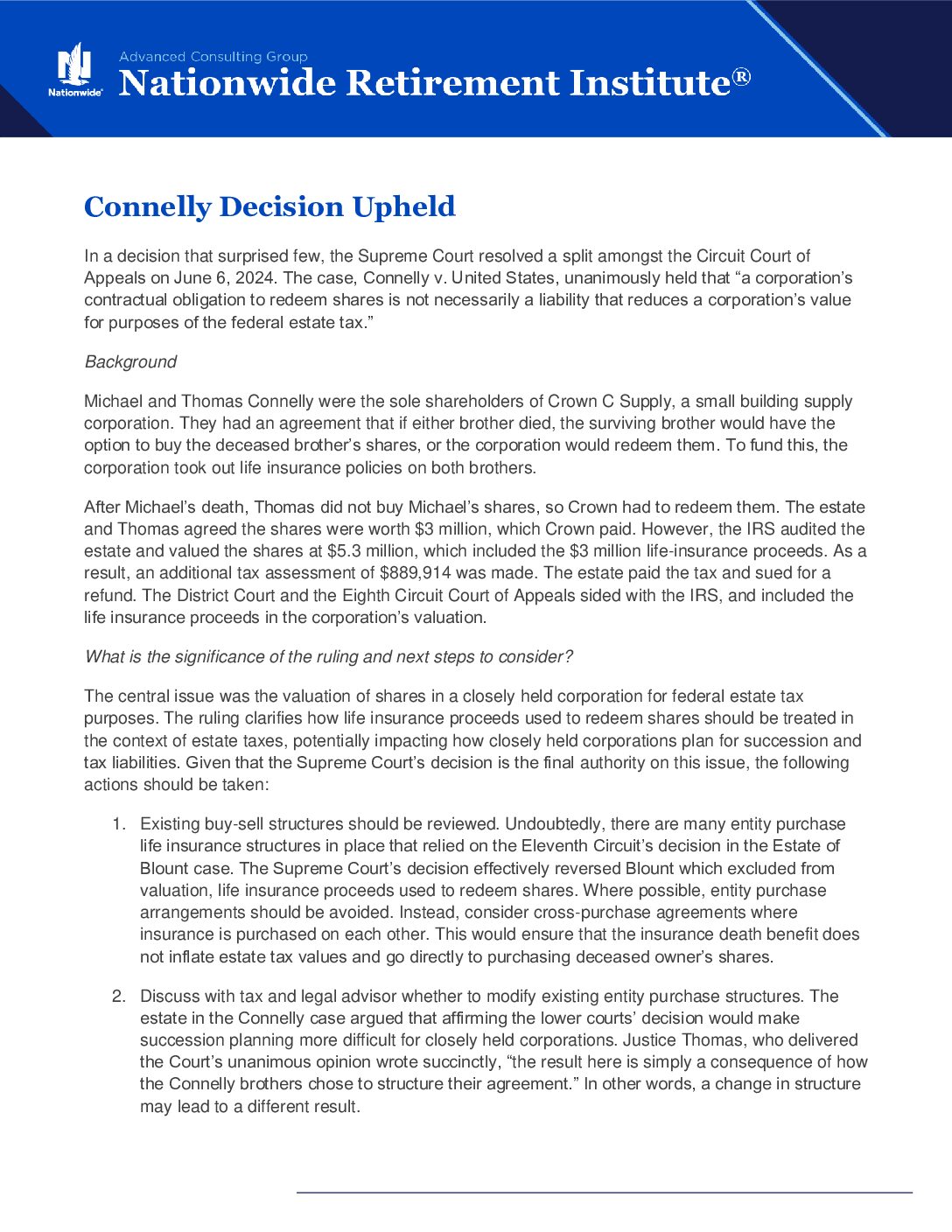The Supreme Court recently ruled in favor of the IRS on its treatment of entity redemption buy-sell agreements.
The decision states that life insurance proceeds paid to a closely held business (to fund an entity redemption buy-sell) will count as an asset of the business without an offsetting liability for the redemption obligation, thus raising the value of the business by the death proceeds for purposes of valuing the estate.
This could have substantial estate tax implications for business owners with larger estates. We think all business owners who have funded their succession plan with life insurance should do a review.
Businesses that may see the biggest impact:
- 2-3 owners
- Sizeable businesses
- Redemption or wait-and-see agreements already in place that are funded with life insurance
The biggest challenge right now is finding a way to get cross-purchase treatment for 3+ owners while limiting the number of policies. In the past, many used Special Purpose Life Insurance LLCs for this, but this can create the same estate tax issue as a redemption now.
Below is a whitepaper about the recent Supreme Court ruling:





